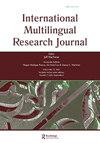NCLB后ESL与双语教师代理的考察:生态视野的拓展
IF 2.1
1区 文学
Q2 EDUCATION & EDUCATIONAL RESEARCH
引用次数: 0
摘要
摘要在《不让一个孩子掉队》(NCLB)和《每个学生都成功法案》(ESSA)之后,人们越来越认识到学习教师代理在与语言多样化学生合作中的重要性,因为NCLB要求并主要由ESSA维护的高风险测试和问责系统对LDS教育工作者和学生产生了负面影响。为此,我们编制了一套全面的实证研究,并进行了主题综合,以考察各种因素如何影响美国英语作为第二语言(ESL)和双语学前教育课堂的职前和在职教师代理。我们采用教师代理的生态模型作为分析框架来指导我们的综合。通过自上而下和自下而上的编码过程,我们通过添加两个因素:知识和情感,进一步扩展了现有的生态模型。详细的分析得出了七个共同的因素,这些因素可能会影响教师在使用LDS时的代理能力,所有这些因素都来自代理的迭代或实践评估维度。教师代理的投射维度相对较少被讨论。在这些因素中,文化和结构因素在所选研究中最受关注,其中结构因素对教师代理的约束作用最大。此外,我们通过对ESL和双语语境的深入分析,发现了教师知识和情绪的细微差异。除了未来的研究方向外,还对如何改善教师教育和专业发展提供了进一步的启示。本文章由计算机程序翻译,如有差异,请以英文原文为准。
Examining ESL and bilingual teachers’ agency after NCLB: expanding the ecological perspective
ABSTRACT There is growing recognition about the importance of studying teacher agency in working with Linguistically Diverse Students (LDSs) after No Child Left Behind (NCLB) and Every Student Succeed Act (ESSA) given that the high-stakes testing and accountability system, required by NCLB and largely maintained by ESSA, have exerted negative effects on LDS educators and students. In response to this, we compiled a comprehensive set of empirical studies and conducted a thematic synthesis to examine how various factors could impact pre-service and in-service teachers’ agency in English as Second Language (ESL) and bilingual PreK-12 classrooms in the U.S. We adopted the ecological model of teacher agency as the analytical framework to guide our synthesis. Through both a top-down and bottom-up coding process, we further expanded the existing ecological model by adding two factors: knowledge and emotions. Detailed analyses led to seven common factors that could shape teachers’ agentic power in working with LDSs, all of which are either from the iterational or practical-evaluative dimension of agency. The projective dimension of teacher agency is relatively less discussed. Among those factors, cultural and structural factors draw most research attention across the selected studies, with the structural factors exerting most constraining effects on teacher agency. Additionally, we uncovered nuanced differences in teacher knowledge and emotions through in-depth analysis of the ESL and bilingual contexts. Further implications on how to improve teacher education and professional development are provided, in addition to the future directions for research.
求助全文
通过发布文献求助,成功后即可免费获取论文全文。
去求助
来源期刊
CiteScore
4.10
自引率
4.80%
发文量
19
期刊介绍:
The International Multilingual Research Journal (IMRJ) invites scholarly contributions with strong interdisciplinary perspectives to understand and promote bi/multilingualism, bi/multi-literacy, and linguistic democracy. The journal’s focus is on these topics as related to languages other than English as well as dialectal variations of English. It has three thematic emphases: the intersection of language and culture, the dialectics of the local and global, and comparative models within and across contexts. IMRJ is committed to promoting equity, access, and social justice in education, and to offering accessible research and policy analyses to better inform scholars, educators, students, and policy makers. IMRJ is particularly interested in scholarship grounded in interdisciplinary frameworks that offer insights from linguistics, applied linguistics, education, globalization and immigration studies, cultural psychology, linguistic and psychological anthropology, sociolinguistics, literacy studies, post-colonial studies, critical race theory, and critical theory and pedagogy. It seeks theoretical and empirical scholarship with implications for research, policy, and practice. Submissions of research articles based on quantitative, qualitative, and mixed methods are encouraged. The journal includes book reviews and two occasional sections: Perspectives and Research Notes. Perspectives allows for informed debate and exchanges on current issues and hot topics related to bi/multilingualism, bi/multi-literacy, and linguistic democracy from research, practice, and policy perspectives. Research Notes are shorter submissions that provide updates on major research projects and trends in the field.

 求助内容:
求助内容: 应助结果提醒方式:
应助结果提醒方式:


